Law, Digital Technologies & ADR



Ambra University (US), Universidade Candido Mendes (BR), South Ural State University (RU), and their Research Group “Law, Digital Technologies & Alternative Dispute Resolution: International and Comparative Perspective”
PRESENT THE CONFERENCE
Law and Digital Technologies:
The Way Forward
Languages: English, Russian, and Portuguese.
RESEARCH GROUP LEADERS AND ORGANIZING COMMITTEE
ELIZAVETA GROMOVA, assoc. professor, South Ural State University (National Research University), Russian Federation.
DANIEL BRANTES FERREIRA, professor, University of Candido Mendes (Brazil) and Ambra University (USA).

ISSN 2409-9058 (Print)
ISSN 2412-2343 (Online)
Conference Closing Session
| Date | Description |
|---|---|
| Abstract submission deadline | October 20, 2021 |
| Abstract acceptance notification | October 25, 2021 |
| Full paper submission deadline | October 30, 2021 |
| Last date of registration for attendees | October 30, 2021 |

Digital technologies are not the future anymore, but our reality. And modern states primarily focus on developing competitive technologies and providing suitable regulation for them. This, in its turn, represents a massive challenge to the law and lawmakers. The regulation, being designed today, will influence our future and further progress of digital technologies.
Therefore, it is crucial to discuss state-of-the-art issues and define future steps in regulation of the digital technologies across the world.
The conference explores the law and governance relating to the creation, implementation, and usage of digital technologies, as the Internet of Things (IoT), Artificial Intelligence (AI), autonomous systems, etc.
This conference is a unique opportunity for students, researchers, and professors to discuss law and digital technologies from a comparative perspective and do international networking. It will happen in two days with an opening ceremony with experts on the field followed by thematic tables. The authors will present their papers either in English, Russian or Portuguese.

The Research Group “Law, Digital Technologies & ADR” was launched in 2021 with the main aim – to create an international students’ virtual hub for the research and cross-cultural collaboration in the sphere of Law and Digital Technologies, including its connection with Alternative Dispute Resolution from the international and comparative perspective.
Law and DT, including its connection with the ADR, represent one of the most interesting and relevant fields of expertise. New generation of lawyers should know about trends, connected with digitalization and its influence on law. Research experience in this sphere gives you the opportunity not only to strengthen your research and academic writing competences. It provides you with the skills, that can give you more opportunities to build an international career and be in demand in today’s market.
To provide students with the opportunity to compare jurisdictions and regulatory approaches of the different countries the P2P approach is chosen. Working in pairs (or small groups) on one of the given research areas under the supervision gives the opportunity to discuss the preliminary and final results of the project and get the necessary for the future career experience of the teamwork.
The group unites young and experienced researchers from 7 countries (Brazil, USA, Russia, Italy, India, Portugal and Uganda), 15 universities (South Ural State University, Universidade Candido Mendes, Ambra University, University of Bologna, Caruso School of Law (Pepperdine university), Amity Law School, Universidade Portucalense Infante D. Henrique, Goenka University and others).
The Research Group registered in CNPq Brazil and co-hosted by Ambra University (USA), Universidade Candido Mendes (BR) and South Ural State University (RU).
Elena F. Gladun, Ph.D.
Professor, Tyumen State University Editor-in-Chief of BRICS Law Journal
(Russia)
Dalton Tria Cusciano, Ph.D.
Associate Professor, Ambra University
(USA)
Emma Roberts, Ph.D.
Associate Professor, University of Chester
(United Kingdom)
Maria A. Bazhina, Ph.D.
Associate Professor, Ural State Law University
(Russia)
Denisa Kera Reshef, Ph.D.
Senior Researcher, Tel Aviv University
(Israel)
Cristiane Giovannini, Ph.D.
Researcher, Pontifical Catholic University of Rio de Janeiro
(Brazil)
Niteesh Kumar Upadhyay, Ph.D.
Associate Professor, Galgotias University
(India)
Bianca Oliveira de Farias, Ph.D.
Professor, Universidade Candido Mendes
(Brazil)
Karin Klempp Franco, Ph.D.
Professor, Facamp
(Brazil)
Marina A. Rozhkova, Ph.D.
Institute of Legislation and Comparative Law under the Government of the Russian Federation, IP CLUB President.
Grazia Eleonora Vita.
Editor-in-Chief of the University of Bologna Law Review, Italy
Dr. Huma Sodher, Ph.D.
Barrister, United Kingdom
1. Regulation of Artificial Intelligence, Cyber-physical Systems, Neural Networks and Robotics
2. Regulation of Blockchain (DLT), Smart Contracts and Cryptocurrencies
3. Legal Regime of Big Data, Digital Technologies, and Personal Data Protection
4. Digital Technologies in Dispute Resolution
5. Regulatory Sandboxes (Experimental Legal Regime) for Creating of Digital Innovations
6. Special Legal Regimes for Creation and Implementation of the Digital Innovations
7. Regulation of the Usage of Unmanned Vehicles
8. Regulation of Digital Platforms
9. Regulation of Cyber Sport
10. Liability and the Use of Technologies
11. Cybercrimes
12. Ethics and Digital Technologies
13. Online Dispute Resolution
Note: These topics are just a sample. We will accept papers that deal with law and digital technologies but that are not cited above.
Faculty member, Research scholar, professionals and students are eligible to participate.
PAPERS WILL BE ACCEPTED IN ENGLISH, RUSSIAN, OR PORTUGUESE.
1. The abstract shall not exceed 500 words. It should include the Title of the Paper, Keywords, the Presenter’s Name, Designation, Institutional Affiliation, Mailing Address, Contact Number and e-mail.
2. The abstract should be typed in Times New Roman, font size 12 with 1.5 line spacing.
3. The abstract shall be submitted through registration link only. All submissions should be uploaded in .doc/.docx format only.
4. Co-authorship is limited to a maximum of two authors. Intimation for acceptance/improvisation will be provided within 2-3 working days from the last date of the submission of abstract.
5. Abstract approval does not guarantee the paper’s presentation at the Conference. The full paper must be sent by the author(s) in due time for that to happen. If not, the author(s) will not be eligible to present the research at the Conference. Nevertheless, the author(s) will still be able to attend as an observer.
1. The length of full paper including tables, diagrams, illustrations, references, etc. should be 5000-6000 words. The paper should be typed in Times New Roman, font size 12 with 1.5 line spacing. Headings to be in bold with font size 14.
2. The footnotes must be typed in Times New Roman, font size 10 with single spacing. The margin of 1 inch on all sides must be maintained throughout the paper.
3. Brazilian ABNT or Bluebook 20th Edition/APA shall be strictly followed for Footnoting and referencing.
4. The Full Paper should be submitted upon selection of Abstract and shall be submitted through Google Form (The link will be shared via E-mail to selected Abstracts) along with the certificate of originality duly filled by the presenter(s). All submissions should be sent in .doc/.docx format only.
5. The title of the manuscript shall be followed by Name of the author(s), the Name of the University/Institution, and the E-mail address.
- Presenters are solely responsible for the creation of their presentation. The presentation should be based on the approved/accepted paper but may include updates and related additional content. Only the listed presenters may present their paper. For a successful and productive conference, all presenters should adhere to the following guidelines:
- PowerPoint Presentation (PPT) is encouraged for presentation at the conference. If giving PPT, presenter(s) should save their presentation in .pdf or .ppt format and present it through the screen sharing mode.
- All presentations are to be in English, Russian, or Portuguese. The presenter(s) should be able to understand and respond to audience questions in the paper’s language.
- Presentations should be of 8-10 minutes which shall be inclusive of 3 minutes for questions. Participants need to join the session 15 minutes before it begins and be well prepared with the presentation. Any unnecessary delay on part of the participant might lead to disqualification.
1. Best papers written in English could be published in BRICS Law Journal (SCOPUS, Q3) 2022 Special Issue (after reviewing process and editor’s decision). In this case article must meet the requirements of the BRICS Law Journal.
2. Best papers written in English could be published in University of Bologna Law Review (SCOPUS, Q3) 2022 Special Issue (after reviewing process and editor’s decision). In this case article must meet the requirements of the University of Bologna Law Review.
3. Chosen papers could be published in book “Law and Digital Technologies: The Way Forward” or in Brazilian Journal for Alternative Dispute Resolution – RBADR and Bulletin of SUSU, Law Series.
4. The conference book, by Ambra University Press, will be published 90 days after the conference.
5. Papers elected to be published in the conference partner journals and book will need to comply with the submission guidelines.
6. Only the authors that perform their paper presentations will be entitled for certificates
7. Participants may write the paper in one language and present it in another of the conference languages
If you have any questions kindly reach out to the organizers at:
- [email protected] (Daniel Brantes, Ph.D.)
- [email protected] (Elizaveta Gromova, Ph.D.)
NO REGISTRATION FEE
Papers and presentations can be submitted in English, Portuguese, or Russian and presentations must match the language of the paper.
Not necessarily. Journals will independently evaluate each paper and will publish the best and more adequate ones.
Only papers written and presented in English will be taken into consideration. Out of those, the BRIC Law Journal shall select the best for publication.
Certificates of participation will only be issued for authors who have presented their work and there can only be one presenter per work. There will be no certificates for authors who were not the presenters of the paper.
Yes. Just register before the “Last date of registration for attendees”.
No. Papers will be picked and published by only one of the journals.
THE RESEARCH GROUP
LAW, DIGITAL TECHNOLOGIES & ADR
Leaders Contacts
Daniel Brantes Ferreira: [email protected]
Elizaveta A. Gromova: [email protected]

Supporter of the Research Group
